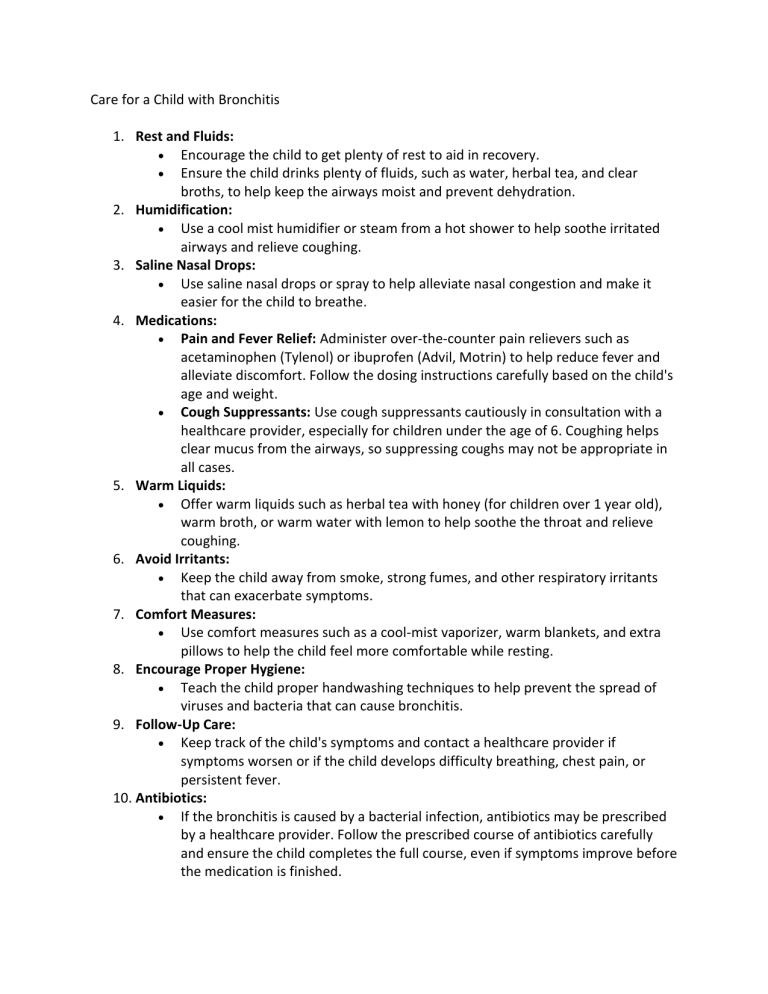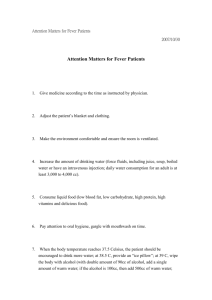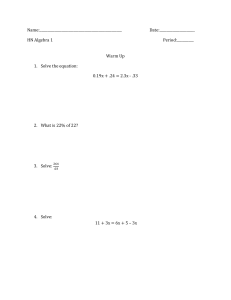
Care for a Child with Bronchitis 1. Rest and Fluids: Encourage the child to get plenty of rest to aid in recovery. Ensure the child drinks plenty of fluids, such as water, herbal tea, and clear broths, to help keep the airways moist and prevent dehydration. 2. Humidification: Use a cool mist humidifier or steam from a hot shower to help soothe irritated airways and relieve coughing. 3. Saline Nasal Drops: Use saline nasal drops or spray to help alleviate nasal congestion and make it easier for the child to breathe. 4. Medications: Pain and Fever Relief: Administer over-the-counter pain relievers such as acetaminophen (Tylenol) or ibuprofen (Advil, Motrin) to help reduce fever and alleviate discomfort. Follow the dosing instructions carefully based on the child's age and weight. Cough Suppressants: Use cough suppressants cautiously in consultation with a healthcare provider, especially for children under the age of 6. Coughing helps clear mucus from the airways, so suppressing coughs may not be appropriate in all cases. 5. Warm Liquids: Offer warm liquids such as herbal tea with honey (for children over 1 year old), warm broth, or warm water with lemon to help soothe the throat and relieve coughing. 6. Avoid Irritants: Keep the child away from smoke, strong fumes, and other respiratory irritants that can exacerbate symptoms. 7. Comfort Measures: Use comfort measures such as a cool-mist vaporizer, warm blankets, and extra pillows to help the child feel more comfortable while resting. 8. Encourage Proper Hygiene: Teach the child proper handwashing techniques to help prevent the spread of viruses and bacteria that can cause bronchitis. 9. Follow-Up Care: Keep track of the child's symptoms and contact a healthcare provider if symptoms worsen or if the child develops difficulty breathing, chest pain, or persistent fever. 10. Antibiotics: If the bronchitis is caused by a bacterial infection, antibiotics may be prescribed by a healthcare provider. Follow the prescribed course of antibiotics carefully and ensure the child completes the full course, even if symptoms improve before the medication is finished.





